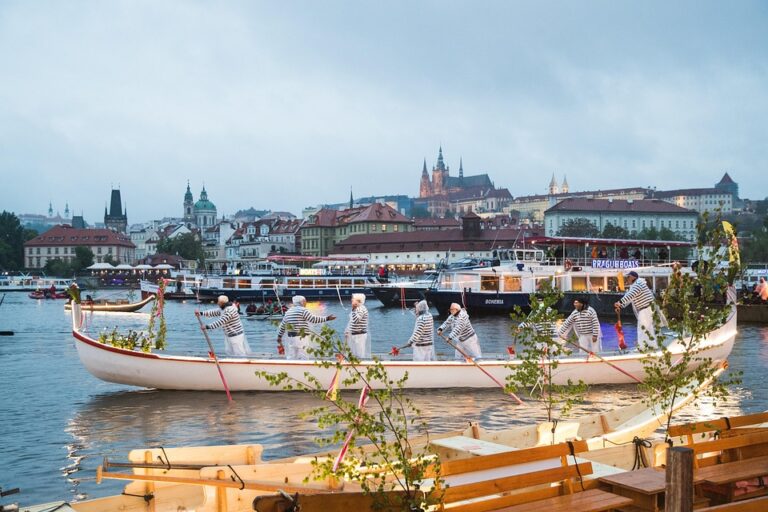The Rise of Festival Tourism: Exploring Global Cultural Celebrations
Festival tourism is rapidly becoming a significant driver of growth in the global travel industry. Travelers worldwide are increasingly seeking authentic cultural experiences that allow them to immerse themselves in local customs and traditions. This article delves into the phenomenon of festival tourism, examines current trends, and highlights some of the most celebrated cultural festivals around the world.
What is Festival Tourism?
Festival tourism refers to the travel motivated by a strong desire to participate in local, national, or international festivals. These events often celebrate art, music, food, or heritage and attract both local and international visitors. Festival tourism not only promotes cultural exchange but also significantly benefits local economies through increased tourism revenue.
The Growth of Festival Tourism
According to a report by Eventbrite, 68% of millennials prefer spending their money on experiences rather than material items, and festivals offer the perfect avenue for these experiences. This trend has been corroborated by research from the United Nations World Tourism Organization (UNWTO), which states that cultural tourism accounts for about 40% of global tourism receipts.
Why Festival Tourism is on the Rise
The rise of festival tourism can be attributed to several factors:
-
Enhanced Travel Accessibility: With cheaper airlines and improved travel infrastructure, attending festivals globally has become more feasible for many.
-
Social Media Influence: Platforms like Instagram and Facebook amplify the visibility of festivals, prompting travelers to seek out these unique experiences.
- Desire for Authenticity: Modern travelers increasingly favor authentic experiences, making cultural festivals a preferred choice.
Popular Cultural Festivals Around the World
Festival tourism encompasses a wide range of events. Here are a few notable examples:
-
Carnival in Brazil: Known for its extravagant parades, samba music, and vibrant costumes, Rio de Janeiro’s Carnival attracts millions every year, drawing over 1 million tourists in 2020 alone before the pandemic.
-
Diwali in India: This festival of lights is celebrated across the globe but is particularly significant in India. With an estimated 1 billion people participating, Diwali represents community, togetherness, and cultural richness, making it a major draw for both domestic and international tourists.
- Oktoberfest in Germany: The world’s largest beer festival, held annually in Munich, showcases Bavarian culture and attracts about 6 million visitors each year.
The Economic Impact of Festival Tourism
The economic benefits of festival tourism are substantial. According to a study by the World Travel & Tourism Council, festivals contribute approximately $650 billion to the global economy. They create job opportunities and stimulate demand for local businesses, including hotels, restaurants, and shops.
For instance, the Edinburgh Festival Fringe, held in Scotland, brings in an estimated £380 million each year, showcasing how local artists and performers can thrive alongside tourism.
Challenges and Sustainable Practices in Festival Tourism
While festival tourism shows promising growth, it’s essential to consider its sustainability. Overcrowding and environmental degradation are significant concerns.
To mitigate these issues, organizers can adopt practices such as:
-
Eco-Friendly Initiatives: Encouraging the use of sustainable materials and reducing waste during festivals.
-
Managing Visitor Capacity: Implementing ticket limits to prevent overcrowding and enhance the visitor experience.
- Community Involvement: Engaging local communities in the planning and execution of festivals ensures that economic benefits are distributed fairly.
Conclusion: The Future of Festival Tourism
As festival tourism continues to grow, it is crucial for stakeholders to adopt sustainable practices that promote cultural appreciation without compromising the integrity of local traditions. The global appeal of festivals speaks to our innate desire for connection, celebration, and cultural exchange.
For more information on various aspects of cultural celebrations and tourism, check out our articles on The Economic Benefits of Cultural Events and Travel Trends in a Post-Pandemic World.
To dive deeper into this topic, consider visiting reputable sources such as the UN World Tourism Organization and Eventbrite’s Festival Report.
Suggested Multimedia
-
Image 1: Colorful parades at the Rio de Janeiro Carnival (alt text: Festival Tourism at Rio Carnival)
- Image 2: Lighting of diyas during Diwali celebrations (alt text: Festival Tourism during Diwali)
By understanding the dynamics of festival tourism and its profound impact on cultures worldwide, travelers can make informed choices and engage with the vibrant tapestry of global celebrations.


